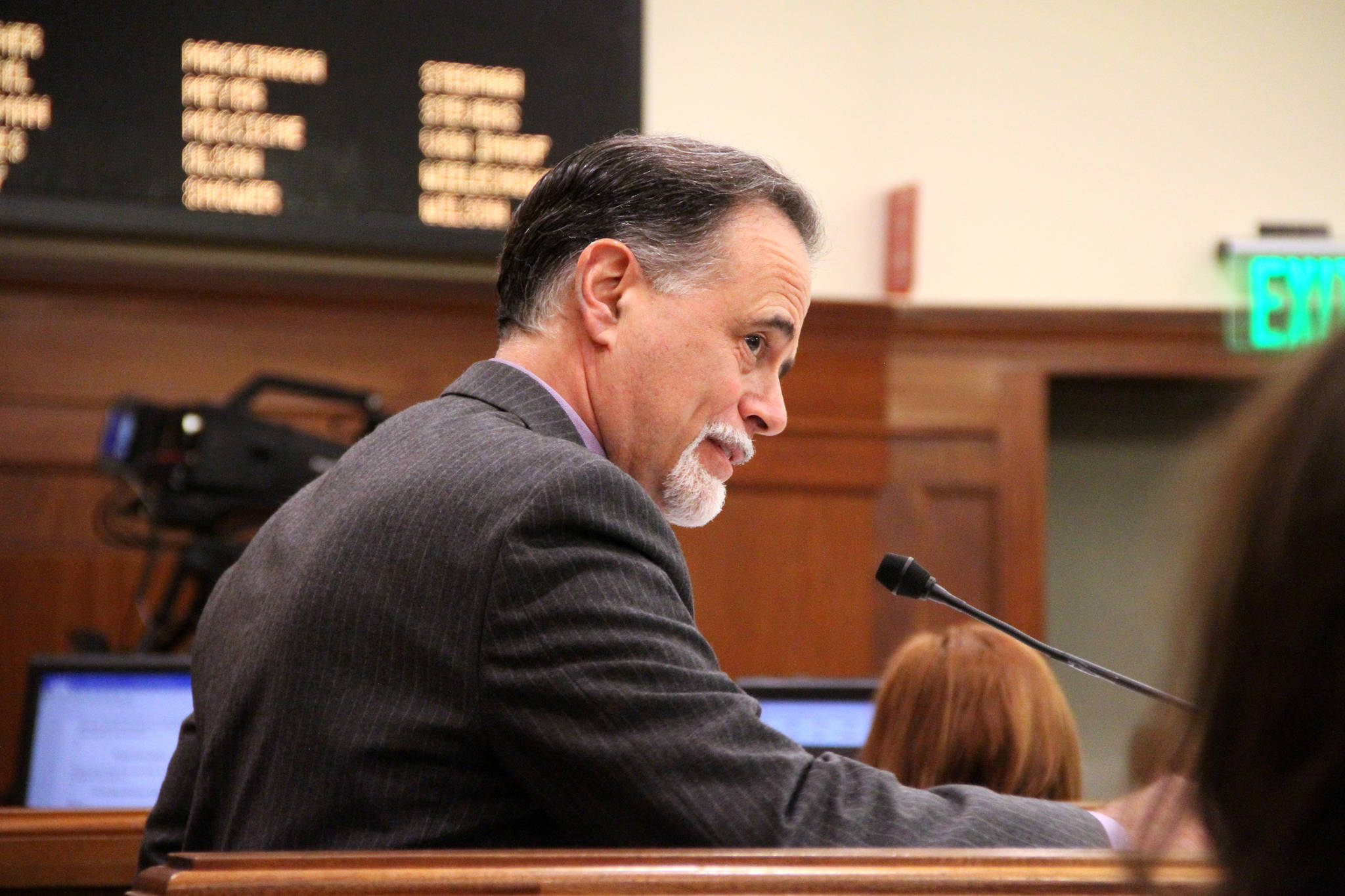In a caucus-line vote Thursday, the Alaska Senate approved a bill that would require healthy Alaskans to work or volunteer at least 20 hours per week in order to receive Medicaid health care benefits.
The bill will not become law unless the Alaska House and Gov. Bill Walker also approve.
The Senate’s 14-4 vote came after the Senate’s Democratic minority made 10 unsuccessful attempts to amend the proposal. All votes against the proposal came from the Democratic minority; all votes in favor of the proposal came from Republicans. The sole Democrat in the Senate Majority was absent from the vote; a member of the Senate Minority was also absent.
Senate Bill 193, sponsored by Senate President Pete Kelly, R-Fairbanks, now advances to the House. On Friday morning, it was referred to the House Health and Social Services Committee.
“This is about lifting people up. It’s not about keeping people down,” said Senate Majority Leader Peter Micciche, R-Soldotna, speaking in support of the bill. “It’s trying to discourage idle hands and encourage successful outcomes.”
The vote is in line with the Senate Majority’s other efforts to cut the amount of money spent on Medicaid services in Alaska. In the Senate Finance Committee, lawmakers suggested too many Alaskans are on Medicaid.
According to the latest available figures from the Alaska Department of Health and Social Services, more than one in four Alaskans receive health insurance through Medicaid.
Most of those people are either working or would be covered by exemptions in the bill. Those exemptions cover children, the elderly, pregnant Alaskans, those who are ill, and those who are undergoing treatment for substance abuse.
About 10.5 percent of the state’s Medicaid population, or about 25,000 people, would not be covered by an exemption.
SB 193 includes a request that the state departments of labor and health try to find out why those people are not working.
Alaska has the highest unemployment rate in the country, and the number of available jobs continues to drop as the state enters the third year of a recession triggered by plunging oil and gas prices.
The work requirement would cost $13.9 million per year (after the first few years), according to fiscal notes provided by the Department of Health and Social Services.
That figure includes $18.8 million in spending and $4.9 million in savings. Included within the cost is $6.1 million for changes to the state’s computer benefit system, and $12.3 million in employee costs.
Supporters of the bill have disputed the department’s estimate.
• Contact reporter James Brooks at jbrooks@juneauempire.com or 523-2258.

